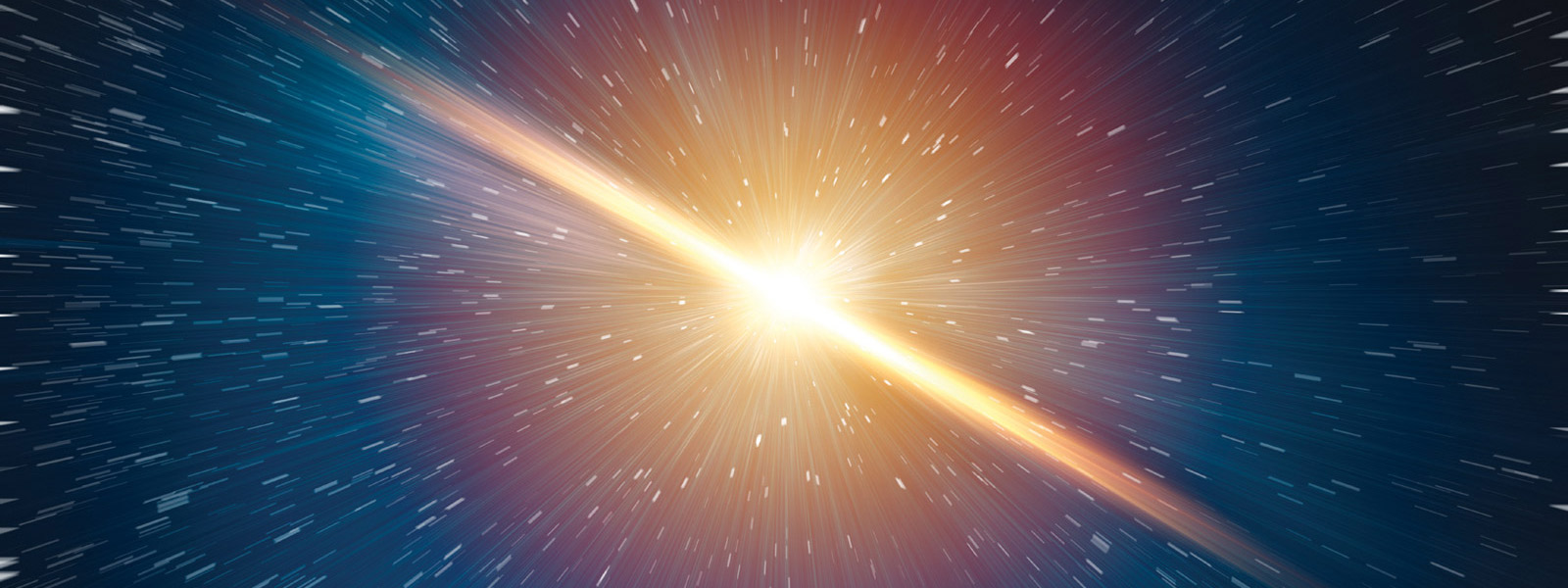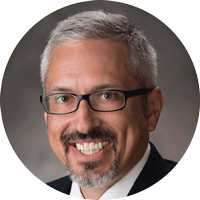

| Catholic University faculty and students are immersed in a culture of research. In this series we offer a sampling of the many big questions they are working on. |

Aaron Dominguez is an internationally recognized particle physicist. He was drawn to Catholic University as a place he could enjoy greater academic freedom and openly discuss and recognize the way his faith fuels and relates to his academic pursuits.
“As I study the building blocks of the universe, I continue to see the fingerprints of God. There is beauty and transcendence in physics. Science can and has been used as a tool to drive people away from God. I believe, as do so many of my colleagues, the contrary. Science pulls us closer to God.”“It takes a real commitment to and love of trying to learn how the world works — solving problems and answering questions through years of experiment. In 2012, my team discovered the Higgs boson particle. It was first proposed by Dr. Peter Higgs in 1967. I’ve spent my entire career, dating back to my Ph.D. dissertation, looking for it. It was worthy of a lifetime of work. To be a researcher takes dedication, passion, and patience. A professor of mine once told me, ‘Just remember, whatever you are doing is probably wrong.’ That has been true over the course of my career. The first 10 or more rounds of any experiment are sure to fail.”
“As a great Catholic research university, we make the connection between what we do in enhancing knowledge through academic discipline and how we serve God. If you look at the breadth of research across the University, no matter the specialty, you will find that to be true.”
“Within our current comprehensive Campaign, growing our support for faculty research is a major priority. It’s one of my primary objectives in my role as University provost.”
Aaron Dominguez is University provost and professor of physics. His research uses particle colliders to search for new physics. He is the recipient of the National Science Foundation CAREER award, and was elected a fellow of the American Physical Society for his research and leading contributions to the measurements of B-hadron properties for top quark physics, and for the search for and discovery of the Higgs boson.